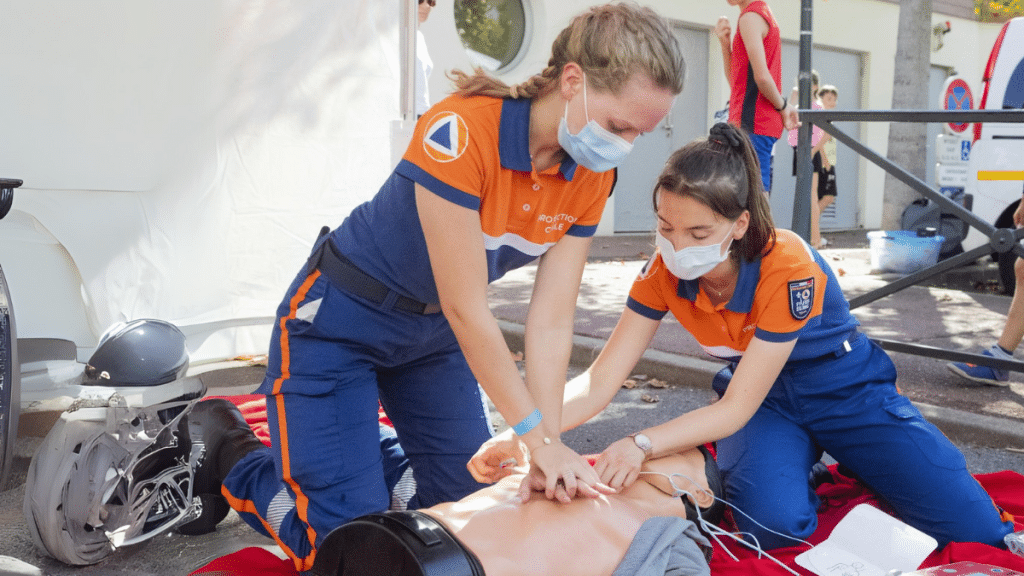CPR is a critical skill that saves lives during cardiac arrest situations. The ability to perform this potentially life-saving procedure correctly relies on proper training and regular practice. For health professionals and everyday citizens alike, maintaining CPR certification is not just a formality; it’s a moral and often legal obligation. In this article, we will explore the reasons why keeping your CPR certification up to date should be a top priority.
The Role of CPR Certification in Ensuring Public Safety and Trust
CPR certification is more than a personal accomplishment; it is a public declaration of willingness and preparedness to assist in emergencies. It’s a critical aspect of ensuring public safety, as the more people there are who can perform CPR competently, the safer the community becomes.
There’s also a significant public trust component at play. Individuals place their trust in certified professionals and volunteers to possess the skills necessary for their safety. Regular recertification is an integral part of maintaining that trust, demonstrating a commitment to public service and safety.
As public health initiatives aim to increase the common knowledge of CPR, accessibility to certification, including the options of CPR online certification, becomes crucial. Every certified individual is another potential lifesaver on the streets, making widespread CPR knowledge an asset to community and public health.
Staying Abreast of the Latest CPR Techniques and Guidelines
The American Heart Association and other authoritative bodies periodically update CPR guidelines to reflect new scientific insights. Maintaining a current certification means you’re well-versed in the most modern and effective techniques, which can be the deciding factor in life-or-death situations.
For medical professionals, adhering to the latest CPR standards is part of being considered competent within their field. Regular recertification allows you to align with industry benchmarks for healthcare quality and patient care, ensuring your practices meet professional expectations.
CPR training isn’t a one-time achievement; it’s a continual learning process. As you revisit these courses, you enhance muscle memory and refine your decision-making skills. Familiarity with procedure updates through scheduled recertification can thus significantly bolster your response effectiveness.
Legal and Professional Repercussions of Lapsed CPR Certification
For many professionals, a valid CPR certification is a legal requirement to practice. Nurses, emergency responders, and others in healthcare face serious professional ramifications if they allow their CPR certification to lapse, including the potential loss of their license to work.
In certain sectors, employers are obligated to ensure that a percentage of their staff is CPR-certified. This is not simply a compliance issue but a measure to reduce liability risks. Employees with expired certifications can pose a legal risk to their employers in the event of an untoward incident where CPR is needed.
Beyond formal occupations, individuals who volunteer or partake in community services also need to keep their certification current. Knowing that someone can confidently administer CPR bolsters the community’s sense of safety and can influence the success of local programs aimed at public health.
How Regular Recertification Builds Confidence in Emergency Situations
CPR scenarios often involve high-stress environments and life-or-death decisions. Training and recertification build the foundation of a strong, composed presence in these situations. By staying certified, you reassure not only yourself but also potential patients and bystanders about your abilities.
Confidence in emergency situations can also impact bystander intervention rates. The more competent individuals feel in their CPR skills, the less they hesitate, and the more likely they are to step up when witnessing a cardiac arrest incident. This confidence, built through recertification, can literally make the difference in acting swiftly.
Regular exposure to emergency drills and scenario training as part of certification courses refines your reactions and automates your responses. You’re not just learning CPR; you’re preparing your mind and body to react as second nature when faced with an actual emergency.
Overall, the importance of maintaining CPR certification is clear: it saves lives, supports public health, and builds an empowered, capable society. Ensuring that your certification remains valid is not just about compliance; it’s about being an active and prepared participant in safeguarding the well-being of those around you.
